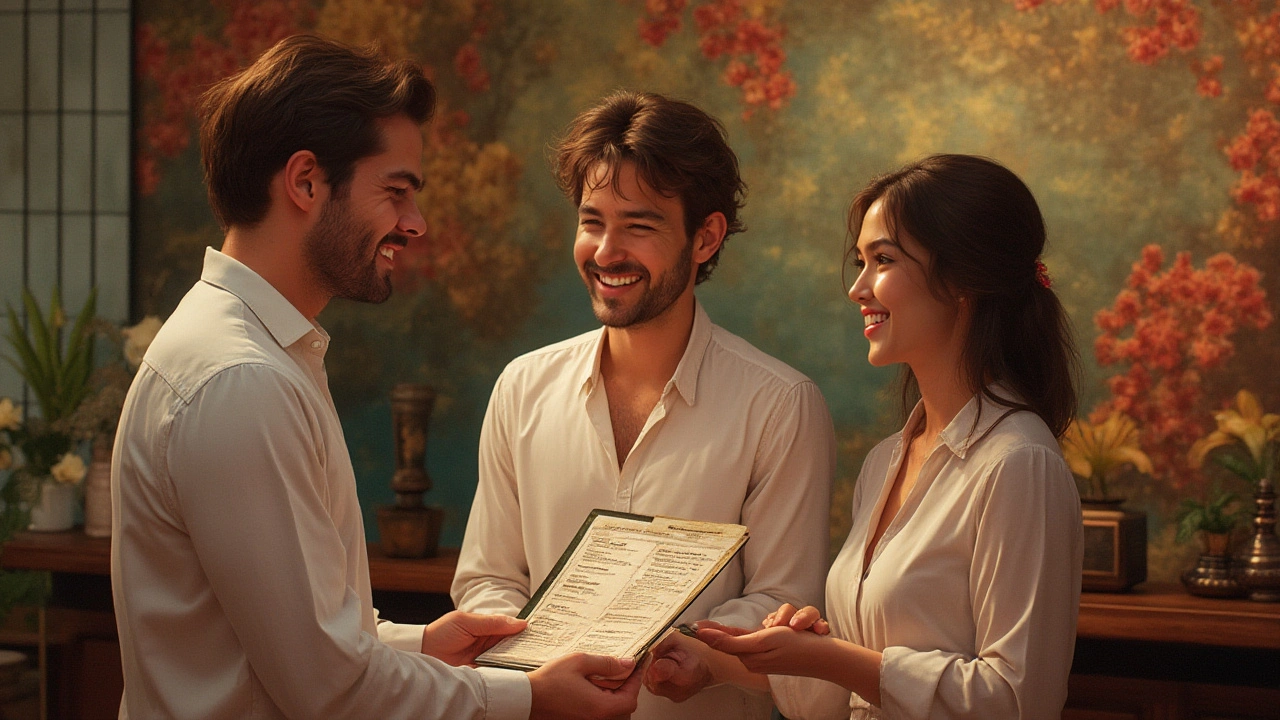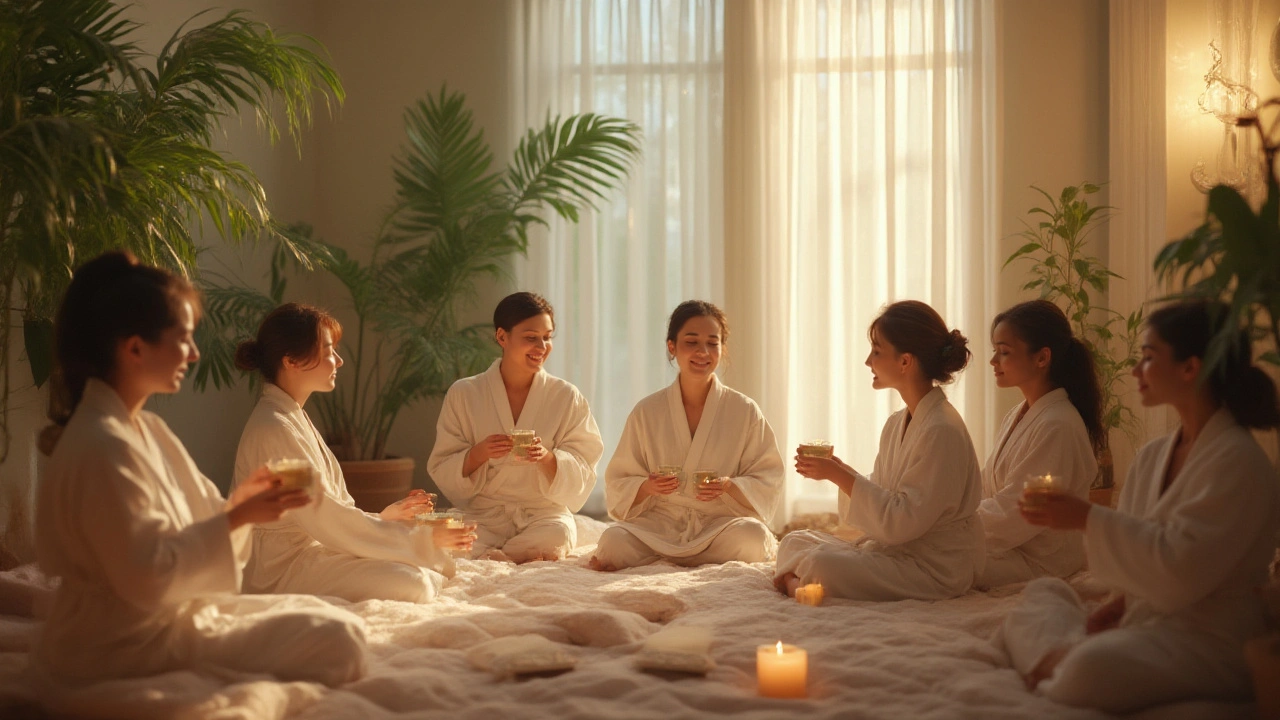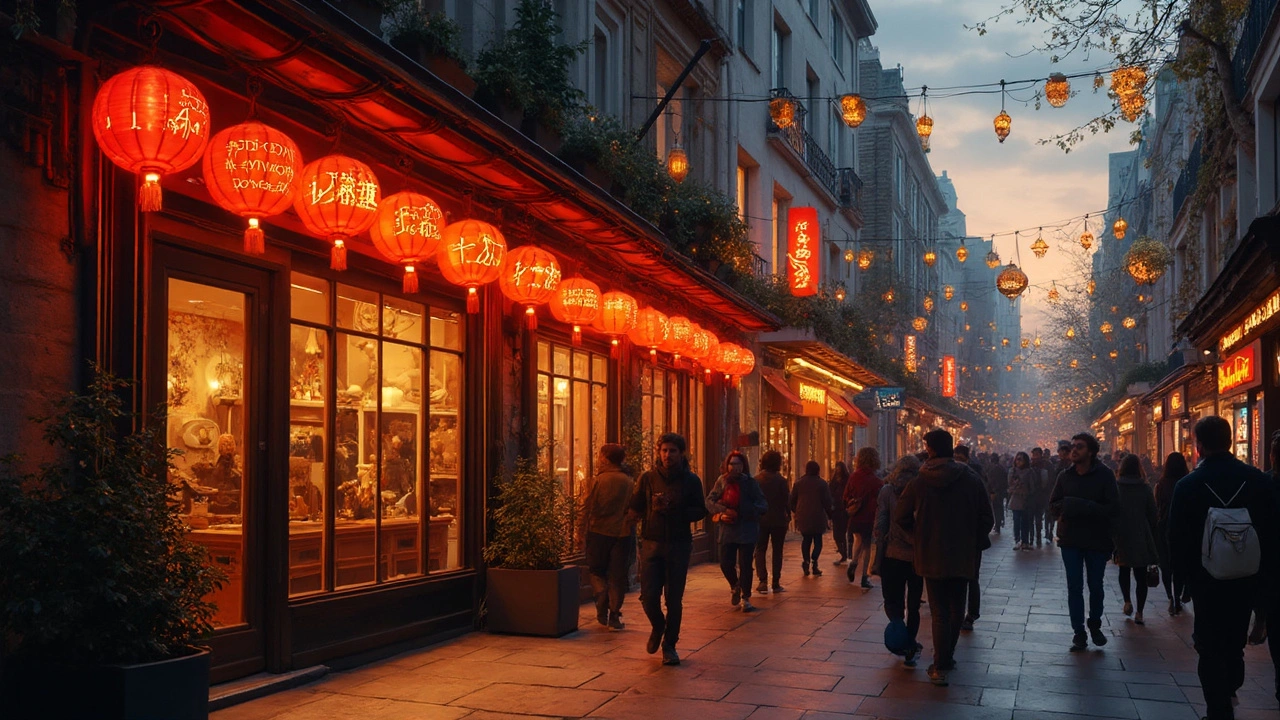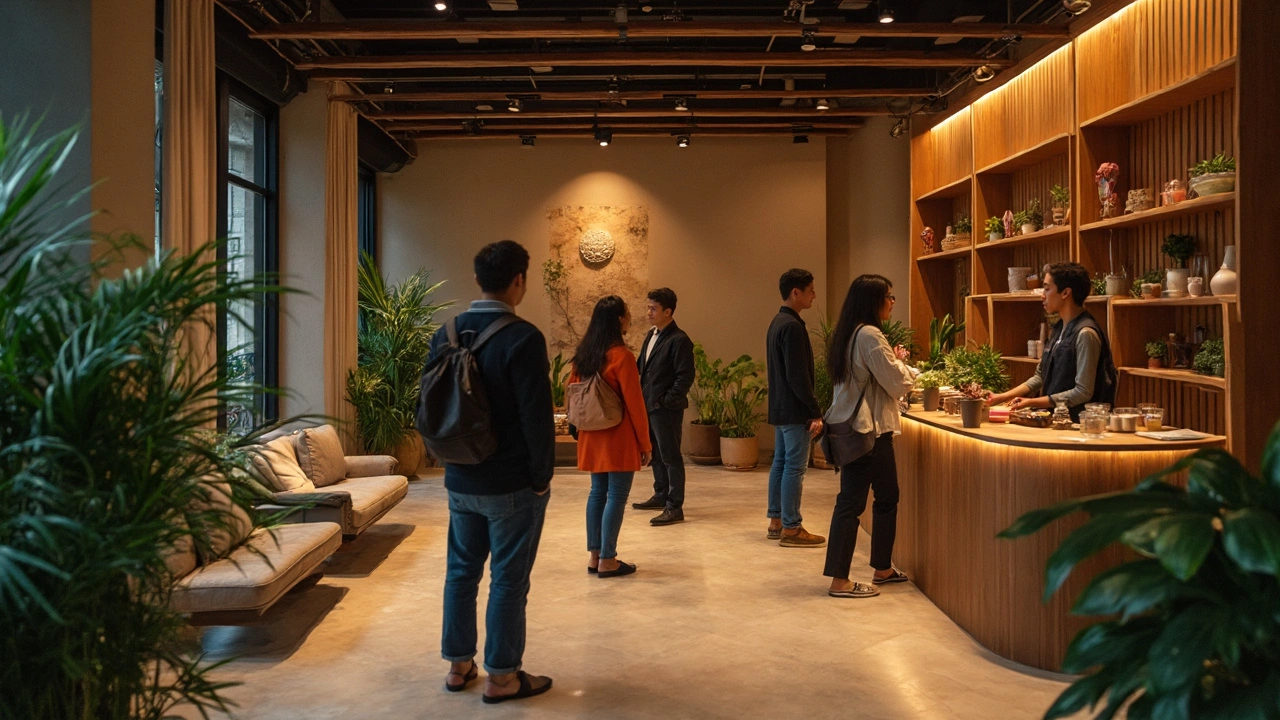Ever feel like the weight of modern London is sitting right on your shoulders? Between the endless rush hours and the constant buzz of city life, finding a moment to breathe seems like searching for your missing sock in a laundry pile. Here’s the twist—people all over London are finding their cure in a practice that’s nearly 2,500 years old. Thai massage isn’t just stretching and pressing; it’s an escape that lets your mind wander and your body reset. Imagine leaving a session feeling like you just hit a reset button. Curious how this ancient healing art made its way from the temples of Thailand right into the heart of Soho and beyond? Stick around, because there’s a reason so many Londoners are hooked.
What is Thai Massage and How Does it Fit in London Life?
If you walked into a Thai massage studio expecting soft strokes and lavender-scented oils, you’re in for a surprise. Traditional Thai massage is more like a blend of yoga and therapeutic touch. Practitioners use their hands, elbows, knees, and sometimes even their feet to stretch, rock, and knead your muscles. You keep your clothes on—no awkward towel moments here. It’s sometimes called “the lazy man’s yoga” because the therapist moves you through stretches as if you were a well-loved rag doll. What’s wild is that this style of bodywork traces its roots back to the time of the Buddha. Monks and traditional healers in Thailand kept it going for generations, using it to boost health, improve energy flow, and ease tired bodies after long days of working in rice paddies.
But why does this matter in London? In a city that never hits pause, stress and stiff joints are part of daily life—biking to work, hours at a desk, or hauling groceries up four flights of stairs. Thai massage offers a full reset without flying halfway across the world. Side note: London’s Thai massage scene started small, mostly in communities of Thai expats bringing a slice of home with them. Now, you’ll find hundreds of studios, not just in Chinatown or Earls Court, but right across the city—Hackney, Camden Town, even tucked away near King’s Cross. Each studio’s got its own vibe, but many keep touches of true Thai hospitality, from sipping herbal teas before your session to hearing soft temple music that immediately soothes rushing thoughts.
Most people rave about how different it feels from Western massages. Instead of just kneading out knots, Thai massage focuses on energy lines (called “sen” in Thai medicine). The goal? To get your energy flowing freely, leaving you more flexible, less tense, and with a natural high that rivals the best post-workout endorphins. No wonder stressed-out Londoners are regulars.

Benefits, Types, and How to Find Authentic Thai Massage in London
So, what’s actually in it for you? People don’t just step out of these places feeling like jelly for nothing. Several authentic sources, including the British Complementary Medicine Association, highlight these perks:
- Increased flexibility: The dynamic stretches are legit. Sports enthusiasts, desk jockeys, and everyone in between often notice improved range of motion after just a few sessions.
- Stress relief: This is a legit game-changer. Life in London can feel relentless, but a single session often drops stress levels fast. People come out feeling calmer, lighter—even their brains seem less foggy.
- Pain reduction: Think bad backs, shoulder aches, headaches. Many people dealing with chronic pain say regular Thai massage is a lifesaver, reducing the need for painkillers or risky treatments.
- Better sleep: Fans of Thai massage often rave that they fall asleep faster and wake up less groggy afterward.
- Mood boost: The blend of stretching and acupressure kickstarts your body’s own feel-good chemicals, making you feel better from the inside out.
Let’s get into the different types you’ll spot in London. Classic Thai massage stays close to the original—fully clothed, no oils, lots of active stretching. Some places offer oil Thai massage, which is gentler, more like a fusion with Swedish techniques. There’s also foot and head Thai massage, which zeroes in on those tired-out zones, and sometimes even four-hands massage (yep, two therapists at once for double the impact).
But how do you find the real deal? Authenticity matters. The top-rated studios tend to have native Thai therapists who trained in accredited schools, such as Wat Pho in Bangkok. Some display their certifications or have special touches—Thai herbal balms, traditional décor, maybe even a “wai” (that signature Thai greeting with palms pressed together) when you enter. The good news is, you’ll find real gems everywhere in London. Start by checking online reviews, looking for words like “authentic,” “genuine,” or “trained in Thailand.” Bonus tip: If you’re not sure where to start, Soho, Bayswater, and Kilburn are packed with long-standing studios. Want it closer to home? Plenty now offer mobile services, so you can get your fix without leaving your flat.

Preparing for Your Thai Massage: Booking, Expectations, and Safety Tips
Ready to give it a go? Booking a Thai massage these days is easier than ever—just a few taps online, or even a WhatsApp message. Most London studios offer easy online scheduling, with options for sixty, ninety, or even two-hour sessions. Expect prices to range from around £45 for an hour in suburban studios, up to £90 or more for luxury spots in Mayfair or Chelsea. Some top-rated studios throw in extras: herbal compresses, hot stone upgrades, or foot soaks. If you’re new, start with an hour session, and a reputable studio will happily talk you through what’s best for your needs. Want a last-minute slot? Some places have walk-in appointments, but booking ahead is almost always smarter—especially after work hours or weekends.
Now, what should you wear and expect? Don’t worry—no awkward nudity. You’ll likely be given loose, comfy cotton pajamas. Sessions take place on a padded floor mat or platform. Your therapist will talk (or gesture) you through the process, but don’t be shy about asking questions or mentioning aches and pains. Some stretches can feel intense, but this isn’t about pain; it’s about release. If something hurts, speak up—good therapists listen. And that famous “cracking” sound people mention? It happens sometimes—it’s not bones cracking but joints moving from a good stretch.
Safety first, always. Go for studios with clear hygiene protocols, especially post-pandemic. Look for licenses and visible certifications. If something seems off—prices too good, pushy upselling, or just a weird vibe—walk away. Avoid eating a huge meal before your session, and stay hydrated afterward. Got a medical condition? Let your therapist know. Pregnant? There are specialist Thai therapies, but don’t book a regular session without checking in first.
Wondering how Thai massage stacks up against other popular options in London, like Swedish or sports massage? Here’s a simple breakdown:
| Thai Massage | Swedish Massage | Sports Massage | |
|---|---|---|---|
| Technique | Stretching, acupressure, fully clothed | Oil-based, long strokes, undressed | Deep tissue, targeted areas, often clothed or in athletic wear |
| Best For | Flexibility, energy reset, full-body relaxation | Mental relaxation, gentle muscle relief | Injury prevention/recovery, athletes |
| Sensation | Active, sometimes intense | Soothing, gentle to moderate | Targeted, deep, sometimes uncomfortable |
| Availability in London | Widespread, especially Thai-run studios | Common in most spas/salons | Specialist clinics and gyms |
| Cost (per hour) | £45-£90 | £50-£100 | £60-£120 |
| Most Popular Areas | Soho, Kilburn, Earls Court | West End, City, Kensington | Islington, Camden, Battersea |
If you’ve still got burning questions, you’re not alone. Here are quick fire answers:
- How often should I get Thai massage? Most people start with once a month, but if you’re training hard or super stressed, every two weeks works wonders.
- Is it painful? It shouldn’t be. Some stretches are intense, but any actual pain means it’s time to tell your therapist.
- Do I need to tip? Tipping is appreciated but not expected. £5-£10 is a nice gesture if you enjoyed your session, especially in independent studios.
- What if I feel awkward? Therapists have seen it all. Trust me, they just want you to relax.
- Can I request a male or female therapist? Absolutely, just mention it when booking.
Ready to experience what all the buzz is about? Treat yourself to a session—whether after a long week or just because you need a reboot. Thai massage in London is authentic, accessible, and honestly, once you try it, you’ll wonder how you ever lived without it.




John Bothman
August 1, 2025 AT 14:15It's fascinating how Thai massage has woven itself into the cultural fabric of places like London, isn't it? It goes beyond just a relaxing rubdown; it’s almost a philosophical journey into understanding one's own body and energy flow.
What really strikes me is the blend of ancient wisdom and modern needs. You get this tactile dialogue where pressure points are like a conversation with your muscles and nerves. Anyone who hasn't experienced true Thai massage might be missing out on a unique form of self-awareness.
Projection of stress relief aside, the holistic benefits—like improved circulation and spiritual balance—are reason enough to give it a chance. The article's tips on booking and prices definitely help demystify what some might perceive as an exotic or inaccessible luxury.
In London, where life can be relentlessly hectic, this seems like an essential respite. I'd love to hear if anyone has suggestions for authentic places or experiences that stayed true to traditional techniques without the tourist gloss.
mike morgan
August 1, 2025 AT 14:45While I acknowledge the popularity of Thai massage in global cities such as London, one cannot help but scrutinize the supposed 'authenticity' that many establishments claim. Too often, we are presented with diluted versions that prioritize profit over genuine tradition.
The commodification of such cultural treasures is alarming. It is imperative that patrons educate themselves on the origin, techniques, and the credentialing of therapists before committing time and money. Otherwise, they risk becoming victims of mere commercial gimmickry.
Moreover, the prices often cited are by no means indicative of value. They rarely reflect the true expertise required to perform authentic Thai massage. In such a cosmopolitan hub, how does one discern the real deal from an opportunistic cash grab?
It's essential to approach this with a critical eye and not fall prey to fancy marketing or aesthetic settings alone. Your physical and financial well-being depend on it.
Beth Wylde
August 4, 2025 AT 10:56I always appreciate seeing discussions about traditional healing practices integrating into western urban life. Thai massage stands out because it not only addresses physical ailments but also invites psychological and emotional relaxation.
Often, when we're caught up in London’s relentless pace, we forget the importance of tuning inward and honoring our body's signals. This type of massage invites a meditative state, where the practitioner’s intentional touch helps you reconnect to your inner self.
The article's guidance on booking and choosing reputable services is crucial, as trust and comfort are paramount when it comes to such personalized therapy.
Has anyone here experienced the mental shifts that come after a session? I find it's not just the muscles but also the mental clutter that gets unknotted.
Sharing such insights could help newcomers appreciate the depth beyond the surface-level relaxation.
Ellen Smith
August 8, 2025 AT 10:05Frankly, while the article outlines the main points of Thai massage, I feel it lacks in addressing the nuances that differentiate quality experiences from mediocre ones. For instance, what standards ensure a therapist is well-trained?
Grammar aside, the pricing section would benefit from a clearer breakdown—what exactly does a standard session cover? Is there variation based on technique or duration?
Also, the occasional use of colloquialisms in the language made it feel less precise. Authenticity, especially in wellness, deserves the highest clarity so consumers make well-informed choices.
More detailed guidance on spotting licensed practitioners versus unqualified ones would elevate this guide significantly.
Bruce Shortz
August 11, 2025 AT 07:26This guide really captured how Thai massage acts as a sanctuary, especially within a demanding city like London. I like how it balanced practical advice with the essence of what makes this practice valuable.
It's reassuring for folks new to this to know about booking etiquette and price expectations—it reduces anxiety that can sometimes come with venturing into the unfamiliar.
For anyone wondering, the variety of Thai massage types—from traditional to more contemporary blends—means there's something for everyone. The key is communication with the therapist before the session starts.
Also, I think the social benefits of sharing this experience with friends or family can be surprisingly gratifying. It’s a gentle way to bond and decompress together.
Brenda Loa
August 13, 2025 AT 22:51Everyone, let's be realistic. If you're seriously interested in an authentic Thai massage, this guide barely scratches the surface. London has become flooded with places claiming authenticity, yet many lack any discernible pedigree.
If you want the real deal, you need to look for therapists trained in Thailand with proper certification. None of those flashy salons with 'zen' décor and minimal hours on site cut it.
This is about integrity and tradition. Don't settle for mere imitations dressed up for the Instagram crowd. The article should have unequivocally stressed the urgency of vetting credentials—not just giving generic booking tips.
Connoisseurs of true wellness will understand the disdain for the watered-down nonsense proliferating out there.
Zackery Woods
August 16, 2025 AT 16:33Let me tell you, the whole 'authentic relaxation' thing has layers of murky undertones in cities like London. Behind the serene facade lies corporate scheming disguised as cultural appreciation.
There's a stark difference between sanctuaries and profit-driven sweatshops repackaging sacred ancient art into quick cash. The industry's opaque, ripe for exploitation, and consumers are unwittingly complicit.
So, before you trust that cozy spa, ask yourself whose interest is really being served—the customer seeking healing or the commercial machine churning dollars? This article, while helpful, glosses over these uncomfortable truths.
Stay vigilant; what appears serene might just be smoke and mirrors perpetuated by capitalist greed.
Yvonne LaRose
August 24, 2025 AT 03:46Reading through this, I appreciate how much effort was made to include various perspectives on Thai massage in London! It’s really important to acknowledge the cultural richness while also providing practical tips for accessibility and safety.
The passionate discussions here highlight the complexity between maintaining tradition and adapting to contemporary urban life. Authentic experiences definitely require respect for origins but also inclusivity for newcomers.
I think encouraging respectful communication with therapists and sharing stories of rejuvenation can bridge gaps of cultural understanding and promote well-being without appropriation.
Anyone thinking of trying it should remember to approach with an open heart and mindfulness—those intentions amplify the benefits far beyond the physical.
Lisa Kulane
August 27, 2025 AT 15:06The incessant glorification of 'authentic' Thai massage in London is precisely what dilutes the very essence it tries to celebrate. There is an overwhelming urge to commodify everything foreign as exotic, and this is a classic example.
Anyone can slap the label 'authentic' on their storefront, but without rigorous standards and cultural accountability, these claims are hollow. It’s a form of cultural fetishism that ultimately disrespects the discipline.
I'd urge readers to consider the broader implications before blindly indulging. Perhaps supporting community-led initiatives or therapists with verified backgrounds is a step in the right direction.
Otherwise, this ends up perpetuating a shallow narrative that erases the complexity and respect the practice deserves.
Rob e
August 31, 2025 AT 02:26This article offers a solid primer, but from personal experience, the variability in quality is quite frustrating. I've had sessions ranging from transformative to downright disappointing.
One thing missing here is a warning about the potential pitfalls—like unlicensed practitioners or inconsistent techniques. Not every place with Thai massage in the title executes the authentic art properly.
I also chuckled a bit at the pricing tip; sometimes cheaper isn't better, but the most expensive places aren't guaranteed greatness either.
Hopefully, this guide encourages readers to balance scepticism with openness and seek recommendations where possible. That blend saves you from wasting time and money.
It’s a journey with benefits—when you find the right therapist, it truly feels like a holistic rebirth.